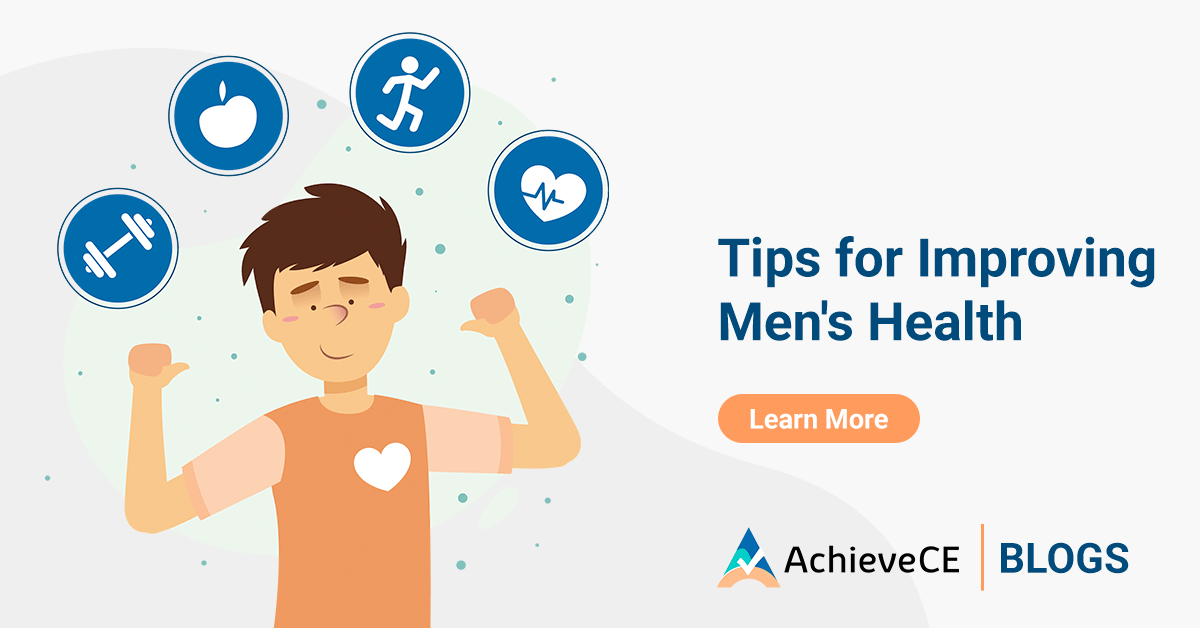Tips for Improving Men's Health

Men's health issues significantly impact everyone around them, and far too many men do not ever see a doctor unless there is something seriously wrong, or a partner or spouse makes the appointment for them. A good time to pay attention to men's health is June, Men's Health Month. Anchored by a
Check out the following tips and information for improving men's health:
Get regular check-ups.
Most men need to pay more attention to their health. Compared to women, men are more likely to make unhealthy or risky choices and put off regular checkups and medical care. Certain diseases and conditions may not have symptoms, so checkups help diagnose issues early. If you can't remember the last time you had a check-up, call and make an appointment.
Sleep matters.
Not getting enough sleep is associated with chronic diseases and conditions, such as diabetes, cardiovascular disease, obesity, and depression. Lack of sleep is also responsible for motor vehicle and machinery-related accidents, causing significant injury and disability yearly. The National Sleep Foundation recommends that adults need between 7-9 hours of sleep.
Move more, sit less.
June is a great time to start a healthier lifestyle by being more physically active. Research shows exercise helps prevent heart disease and obesity, and lowers blood pressure. Aim for 30 to 60 minutes on most days. You can even spread it out over the course of your day. Eat healthier. Ways to improve the nutritional quality of your diet include eating a varied diet rich in fruits, vegetables, whole grains and low-fat foods. Especially limit cholesterol intake and avoid saturated fats. Be a healthy role model and encourage others to eat healthy and lead by example.
Toss tobacco.
It's never too late to quit. According to the Centers for Disease Control and Prevention, quitting smoking has immediate and long-term benefits. It improves health and lowers risk of heart disease, cancer, lung disease, and other smoking-related illnesses. Avoid being around secondhand smoke. Inhaling other people's smoke causes health problems similar to those of smokers.
Pay Attention to Warning Lights.
When a warning light flashes on the car dashboard, most men take the car to the shop. But when warning lights flash on their body, most men don't (or won't) notice. Examples of flashing lights to look for are changes in bowel or bladder habits, persistent backaches, recurrent chest pains, shortness of breath, excessive thirst, and extreme fatigue. Keep track of your numbers for blood pressure, blood glucose, cholesterol, body mass index (BMI), or any others you may have.
Women and men should educate themselves about potential male health problems. Check out
Adapted from Lisa Franzen-Castle, PhD, RD, University of Nebraska-Lincoln Extension Nutrition Specialist.